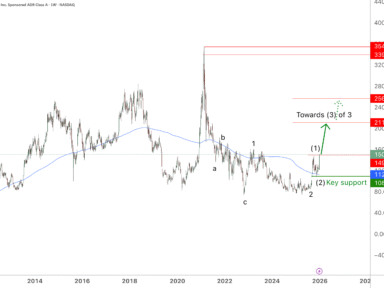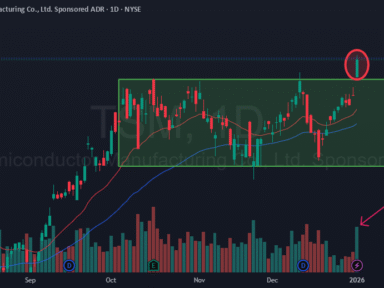Takeaways
• Amazon has introduced a new AI agent specifically designed to assist sellers on its platform with business management tasks.
• The AI assistant can help with creating product listings, responding to customer messages, analyzing sales data, and managing inventory.
• This tool is part of Amazon’s broader strategy to integrate AI across its seller ecosystem to improve efficiency and competitiveness.
• The AI agent uses natural language processing to understand complex seller queries and provide contextual assistance.
• Early adopters report significant time savings, with some sellers reducing administrative tasks by up to 40%.
In a significant move to empower its vast network of third-party sellers, Amazon has unveiled a new AI-powered assistant designed to streamline business operations and automate routine tasks. The AI agent, announced yesterday, represents Amazon’s latest effort to integrate artificial intelligence into its seller ecosystem, providing merchants with powerful tools to compete more effectively in the increasingly competitive e-commerce landscape.
The new AI assistant aims to address common pain points for Amazon sellers, who often struggle with time-consuming administrative tasks while trying to grow their businesses. By automating these processes, Amazon hopes to help sellers focus more on product development and business strategy rather than getting bogged down in day-to-day operational details.
How Amazon’s New AI Agent Works for Sellers
The AI assistant leverages advanced natural language processing capabilities to understand and respond to seller queries in a conversational manner. Unlike previous tools that required specific commands or navigation through complex menus, sellers can simply ask questions or request assistance in plain language. For example, a seller might ask, “How can I improve my product listing for better visibility?” and receive tailored recommendations based on their specific product category and current listing quality.
The AI agent can handle a wide range of tasks, including creating and optimizing product listings, responding to customer inquiries, analyzing sales performance data, managing inventory levels, and even suggesting pricing strategies based on market conditions. The system integrates directly with Amazon’s Seller Central dashboard, providing a seamless experience for merchants.
According to Amazon, the AI assistant has been trained on millions of seller interactions and marketplace data points, allowing it to provide contextually relevant advice that takes into account both general best practices and category-specific insights. The system is designed to learn and improve over time, adapting to each seller’s unique business needs and preferences.
Benefits and Early Seller Feedback
Early adopters of the AI agent report significant time savings and operational improvements. In Amazon’s limited beta testing program, sellers experienced an average 30-40% reduction in time spent on administrative tasks, allowing them to reinvest those hours into strategic business growth activities.
“The most valuable aspect is how it helps me respond to customer messages more efficiently,” said Maria Rodriguez, an Amazon seller who participated in the beta program. “The AI drafts thoughtful responses based on my previous communication style, and I just need to review and approve them. What used to take hours now takes minutes.”
Beyond time savings, sellers have noted improvements in their listing quality and conversion rates. The AI assistant can analyze existing listings and suggest enhancements to titles, bullet points, and descriptions that improve search visibility and customer engagement. Some sellers reported seeing conversion rate improvements of up to 15% after implementing the AI’s recommendations.
The system also provides proactive alerts about potential inventory issues, pricing opportunities, or policy changes that might affect a seller’s business, helping merchants stay ahead of potential problems rather than reacting to them after they occur.
Amazon’s Broader AI Strategy for Sellers
This new AI agent is part of Amazon’s comprehensive strategy to integrate artificial intelligence across its seller ecosystem. The company has been gradually introducing AI-powered tools to help sellers optimize various aspects of their businesses, from inventory forecasting to advertising campaign management.
David Miller, Amazon’s Vice President of Seller Services, emphasized the company’s commitment to supporting third-party merchants: “Our sellers are the backbone of Amazon’s marketplace, and we’re committed to providing them with the most advanced tools to succeed. This AI assistant represents a significant step forward in how sellers can interact with our platform and manage their businesses.”
The introduction of the AI agent comes at a time when Amazon faces increasing competition from other e-commerce platforms that are also investing heavily in seller tools and services. By leveraging its vast data resources and AI capabilities, Amazon aims to maintain its position as the preferred platform for third-party sellers.
Industry analysts view this move as strategically important for Amazon’s long-term marketplace growth. “By reducing the operational burden on sellers, Amazon is effectively lowering the barriers to success on their platform,” noted e-commerce analyst Sarah Johnson. “This could attract more high-quality sellers to the marketplace, ultimately benefiting both Amazon and its customers through increased product selection and competition.”
FAQ
When will Amazon’s new AI agent be available to all sellers?
Amazon plans to roll out the AI assistant to all US-based sellers by the end of 2025, with international availability expected in early 2026. The company is using a phased approach to ensure system stability and incorporate feedback from early users.
Is there an additional cost for sellers to use the AI agent?
According to Amazon’s announcement, the basic version of the AI assistant will be available to all sellers at no additional cost. However, a premium version with advanced features like deeper sales analytics and enhanced automation capabilities will be offered as a paid subscription service.
Can the AI agent help with Amazon advertising campaigns?
Yes, the AI assistant can provide recommendations for advertising strategies, help optimize keyword targeting, and suggest budget adjustments based on campaign performance. It can also generate reports showing the ROI of different advertising approaches.
How does the AI agent handle complex seller questions?
The system uses natural language processing to understand context and intent. For complex queries, it breaks down the question into manageable components, provides relevant information for each part, and offers follow-up suggestions. If a question exceeds its capabilities, it will direct sellers to appropriate human support channels.
Will the AI assistant work with third-party seller tools?
Amazon has announced plans to release an API that will allow integration with popular third-party seller tools and services. The initial release will focus on inventory management and repricing tools, with additional integrations planned for the future.
How does Amazon ensure the AI provides accurate information?
The AI system has been trained on Amazon’s seller policies, best practices, and marketplace data. It includes built-in fact-checking mechanisms and will indicate when information might be uncertain. Amazon also maintains human oversight of the system and regularly updates its knowledge base to reflect policy changes.
Future Developments and Integration Possibilities
Looking ahead, Amazon has indicated that the AI agent represents just the beginning of its AI-powered seller tools roadmap. Future updates are expected to include enhanced predictive analytics capabilities, allowing sellers to anticipate market trends and customer preferences before they become widely apparent.
The company is also exploring ways to integrate the AI assistant with other Amazon services, such as Fulfillment by Amazon (FBA) and Amazon Advertising, creating a more unified experience for sellers who use multiple Amazon business services.
Additionally, Amazon plans to develop specialized AI modules for different product categories, recognizing that sellers of fashion items face different challenges than those selling electronics or home goods. These category-specific assistants would provide more tailored advice relevant to particular market segments.
For sellers who operate across multiple marketplaces, Amazon is working on capabilities that would allow the AI to help manage listings and inventory across different country sites, automatically adjusting for local regulations, language differences, and market preferences.
The introduction of this AI agent signals Amazon’s recognition that empowering sellers with advanced technology is essential for maintaining a vibrant marketplace. As e-commerce continues to evolve, the line between human and AI assistance is likely to blur further, with intelligent systems handling increasingly complex aspects of online selling while merchants focus on product innovation and customer relationships.
















How would you rate AI Agent: Amazon’s New Tool Helps Sellers Automate Business Tasks?